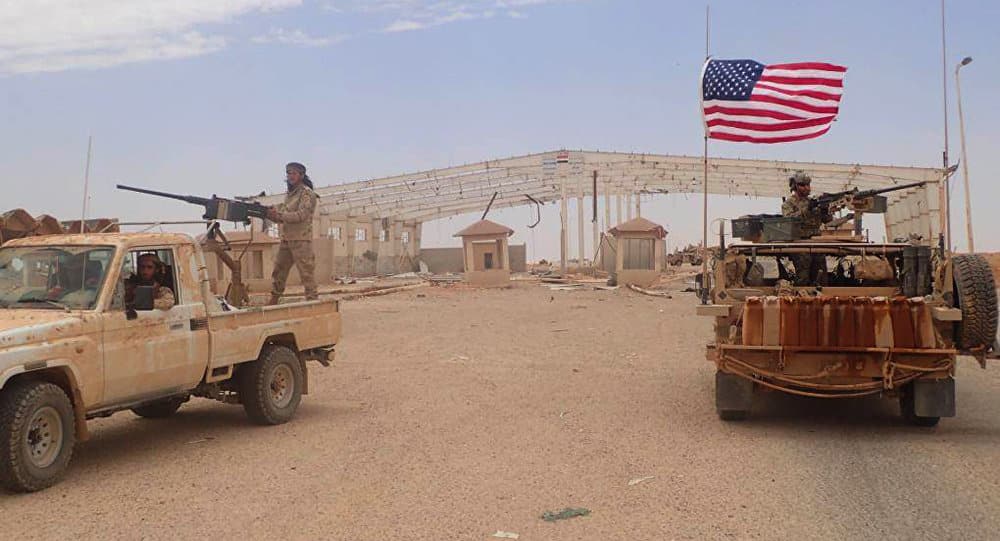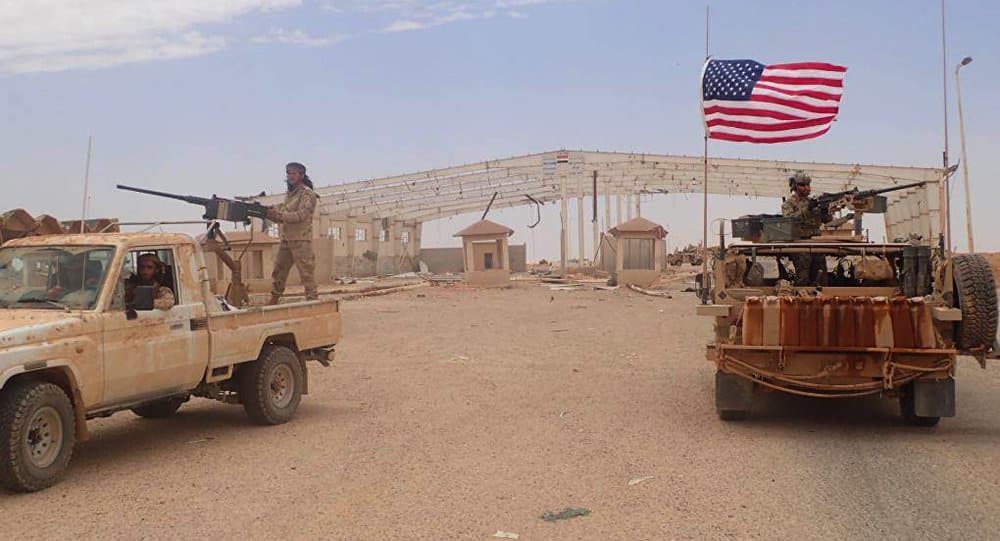
This week’s attacks in Tehran, for which the Islamic State (ISIS) promptly claimed responsibility, are at this writing the latest incidents to roil the troubled waters in an increasingly turbulent “Broader Middle East”. They will not be the last.
The terror in Tehran comes as the threats from Saudi Arabia against Qatar on the surreal charge of supporting terrorism have reached a fever pitch. Observers openly discuss the possibility of a coup against the ruling Sheikh Tamim bin Hamаd al-Thani, or even a Saudi invasion. Regarding a possible regime change, Saudi media note that Tamim’s father, Hamаd, came to power in a coup against his father; coups are not rare in Qatari history, and there’s always another al-Thani brother, cousin, or nephew who could be installed as a suitable puppet for Riyadh.
As for an invasion, keep in mind that Qatar was a part of the first and second Saudi states (defunct in 1818 and 1891, respectively) and could end up that way again. Given depressed oil prices and Qatar’s massive natural gas reserves, the Saudis would welcome a quick and lucrative diversification of their portfolio. Qatar has placed its armed forces on the highest state of alert.
Meanwhile, in Syria, on June 6, US planes for the second time put in an airstrike on pro-government forces near the al-Tanf border crossing with Iraq, near Jordan. The stated purpose was to protect US-supported “moderate” jihadists in a “de-confliction zone” unilaterally declared by Washington. The US also has reportedly established a presence at al-Zkuf, another border point to the north and east, with the obvious aim of blocking any link-up of Syrian and Iraqi forces fighting against ISIS.
This coincided with announced launch of an offensive to capture ISIS’s nominal capital at Raqqa, spearheaded by the US-sponsored Syrian Democratic Forces – of which the main element by far is the Kurdish YPG, denounced as PKK terrorists by America’s unreliable NATO ally Turkey.
All three of these destabilizing developments stem from a common root: the agenda of Saudi Arabia to further its Wahhabist agenda of violence and intolerance, which are notorious even by the inhumane standards prevailing in the Islamic world. Worse, that agenda has gotten a major boost from US President Donald Trump’s ill-advised visit to Riyadh last month, where he pledged what amounts to unlimited military and political support to 31-year-old Minister of Offense Defense and Deputy Crown Prince Muhammad bin Salman, who is effectively the country’s ruler in the name of his doddering father, King Salman.
Muhammad is the man behind the ongoing carnage Saudi Arabia and its Gulf allies (including Qatar!) are inflicting on Yemen, with US and British help, and he no doubt would not shy from adding Qatar to his list of atrocities. Whether he would go as far as provoking open war with Iran, confident that the US has his back, remains to be seen. Indeed, given Riyadh’s support for jihadist groups, including ISIS, it can’t be dismissed that the Saudis had a hand in the Tehran attacks in order to draw a response. No doubt the Iranians suspect as much.
The Saudi accusation that Qatar is abetting terrorism is true in the sense that Doha has been aiding jihadists in Syria, including ISIS, al-Qaeda, and their motley offshoots. Riyadh should be well aware of that, since the Saudis are arming the very same terrorists. That’s not what the row is about, though. What the Saudis object to is, in part, Qatari support for the Muslim Brotherhood, a group Riyadh also helped for more than half a century before finally withdrawing their support with the Brothers’ rise to power in Egypt in 2012. To be sure, the Muslim Brotherhood is a nasty piece of work, though the United States has not listed it as a terrorist organization. The Saudis’ main objection to the Brothers isn’t their radicalism – Riyadh gladly and lavishly supports far worse in many countries – but their populism and perceived threat to the royal pretentions of the House of al-Saud and those of other hereditary dictatorships in Muslim countries.
But Tamim al-Thani’s real offense is his apparently willingness to talk with the Iranians, whom with American and Israeli backing the Saudis – the world’s state sponsor of terrorism, both in the “hard” form of money and arms and the “soft” form of Wahhabist ideology – fault for all the ills of the Middle East and the world. (In an inventive new wrinkle, a CNN report seeks to blame to the whole quarrel on – you guessed it – the Russians! According to one of America’s leading fake news purveyor, “US investigators believe Russian hackers breached Qatar’s state news agency and planted a fake news report [that]… attributed false remarks to the nation’s ruler that appeared friendly to Iran and Israel and questioned whether President Donald Trump would last in office”.
To the extent that report actually triggered the crisis, which is doubtful, it seems convenient for a number of parties to avoid the probability that the report was an accurate account of Tamim’s views.) It remains to be seen if Riyadh can force Qatar to heel in short order. With mediation efforts by Oman, Kuwait, and other countries, Qatar may seek to appease it more powerful neighbor by reining in Al-Jazeera, expelling Muslim Brotherhood leaders, and cutting off dialogue with Tehran. Washington will also press for Doha’s capitulation, having put all its eggs in the Saudi basket while not wanting to jeopardize the US Central Command’s forward headquarters in Qatar.
On the other hand, the Qataris may decide to stand their ground. Doha is not without supporters. German Foreign Minister Sigmar Gabriel blamed the US (and by extension, the Saudis) for the crisis, denouncing the “Trumpization” of relations in the Gulf region. Iran has offered to send food shipments to Qatar to compensate for the closing of Saudi Arabia’s land border. Turkey, which is favorable to the Muslim Brotherhood, has a base in Qatar, and the Turkish parliament is fast-tracking a bill to deploy forces there. It should be noted that Turkey, while a NATO ally, is increasingly estranged from the US, largely over US support for the Syrian Kurds. Turkey and Iran, together with Russia, are participants in the legitimate de-escalation zones under the Astana process, which is acceptable to Damascus but at odds with Riyadh and Washington.
This is where it comes back to Syria. Despite all the talk of fighting ISIS and “terrorism” it is clear that the main demon in American policy remains Iran. Not only has the US sought to block pro-Iranian Syrian and Iraqi control of their mutual border, it is clear that a redeployment of ISIS fighters from Raqqa to the south and east towards Mayadeen and Abu Kamal in Deir ez-Zor Governorate is not entirely accidental. This puts the US presence at al-Tanf and al-Zkuf in a de facto partnership with ISIS against Damascus and Baghdad, creating what the Israeli outlet Debkafile security analysis site calls “the approach of a major showdown for control of southeastern Syria and its strategic multiple border assets.”
This is why, despite bluster from Defense Secretary James Mattis that the US-directed Kurdish offensive would subject ISIS to “annihilation” tactics, the reality is that ISIS fighters – or perhaps some Sunni ISIS-”light” to be assembled after Raqqa falls – are a strategic asset not to be discarded. (On June 1, Kurdish and allied groups allowed ISIS fighters safe passage out of Raqqa, but once out in the open the Russians – who were not party to the arrangement – slaughtered them with air power. Now that’s annihilation!) As one neoconservative reflecting the view that Iran must be thwarted at any cost has suggested, the key is Deir ez-Zor, where an isolated Syrian army force has been valiantly holding out for years under sustained ISIS attack. (It should be recalled that in September 2016 US planеs “mistakenly” bombed Syrian positions in Deir ez-Zor, killing dozens of soldiers and aiding an ISIS attack.)
Thus, the Broader Middle East is beginning to resemble a room full of gasoline, with the Saudis gleefully striking matches. The underlying question is why the Trump Administration is backing them up and giving them the confidence they can get away with it. Foreign Minister Gabriel’s reference to “Trumpization” is somewhat off the mark. The Qatar confrontation, US actions to block link-up of Syrian and Iraqi forces (with ISIS and their Saudi sponsors the main beneficiaries), and at least indirectly the Tehran attacks, all proximately reflect the blank military and political check Trump has given Muhammad bin Salman.
This isn’t “America First” but as described by Srdja Trifković it’s “Wahhabism First”. It’s a manifestation not of “Trumpization” of American policy but of “de-Trumpization” and the Washington “Swampization” of his administration. Sad!
Reprinted with permission from the Strategic Culture Foundation.

